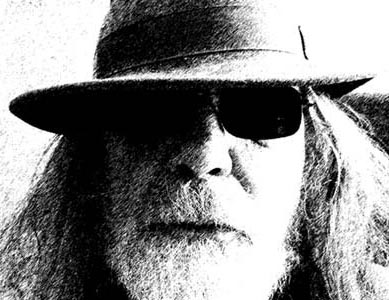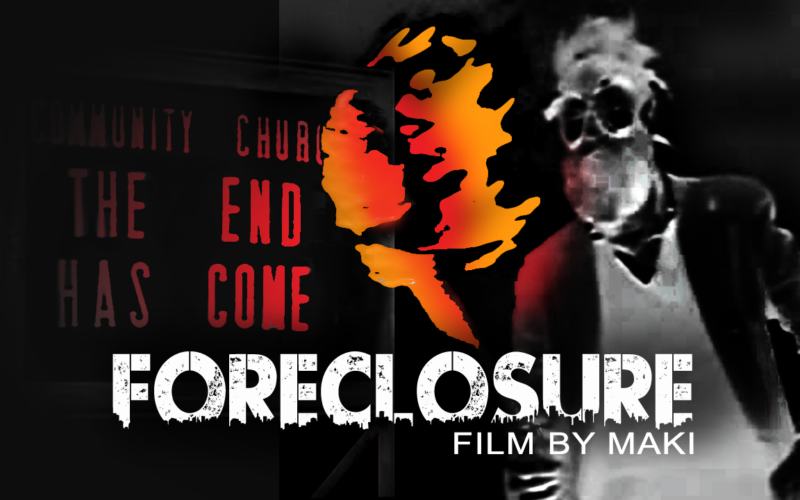
Get ready for a cinematic experience unlike anything you’ve yet seen. Art-house filmmaker Maki’s new experimental film “Foreclosure” reimagines the iconic Italian 1964 sci-fi flick “The Last Man on Earth” into a provoking and utterly unique storytelling feast.
Early reviews are hailing the revisionist film as a groundbreaking entry into the emerging “metamodern” movement in cinema – a school of filmmaking blending both modern and postmodern cinematic aesthetics into a new vision of our times.
Director Maki takes the original black-and-white footage and infuses it with “a new cinematic drama, stunning soundtrack and desperate voices confronting the unstoppable,” creating a meta-commentary on our modern world in crisis. This innovative approach signals an exciting new direction for indie film that blends nostalgia and social commentary in a way that engages our sensibilities.

At its core, “Foreclosure” grapples with the pressing issues facing humanity today – corporate power run amok, looming extinction, and existential dread. The story envisions corporations overseeing “humanity’s extinction” as civilization descends into “a suicidal existence with no hope for a future.” The inclusion of recordings of strange sky sounds heard in the past years lends an eerie apocalyptic atmosphere.
Beyond the narrative, the film’s unique aesthetic choices reinforce its themes of provenance and destiny, asking timeless questions about humanity’s fate. Who is telling the truth? Who will survive? The vintage black-and-white cinematography conjures “a twilight-zone surrealism where the normal is not normal anymore,” inviting us further into its web.
This melding of retro footage and neoteric soundtrack is emblematic of our current cultural moment, where remix culture predominates and nostalgia permeates. Yet “Foreclosure” moves beyond shallow pastiche or empty homage. Maki transforms the original, building new layers of meaning within. The resulting work feels fresh and profound, transcending eras to probe the human condition.
Such experimental art-house films are a part of the indie canon, from De Palma’s “Blow Out” to Tarantino’s oeuvre. However, as technology democratizes filmmaking, indie films created on public domain footage are emerging as their own subgenre. “Foreclosure” reps the vanguard of this new breed of indie meta-cinema that isn’t afraid to cannibalize the past to speak to the present.

The film’s unique production process also signals an evolution in indie praxis. Maki’s resourceful recycling of cult classic footage reflects the fiscal realities indie filmmakers face. By working within zero-budget constraints, Maki spotlights the creative possibilities found in the limitations. His remixing prowess shows that with enough vision, existing elements can be transformed into something novel. This points to a sustainable future for films unbeholden to major studios or big budgets.
“Foreclosure” offers insight for new fans of metamodern cinema. While a tragic outcome may await the characters, perhaps Makiís dark dystopia can liberate the creative ethos of independent film itself.
By allegorically wrestling with contemporary global anxieties, Maki’s film challenges both form and content. This avant-garde approach suggests unexplored directions for the genre, potentially inspiring a new wave of socially-conscious films. Indeed, through its stylized grappling with real-world dread, “Foreclosure” may launch a renaissance in indie cinemaís capacity for conscientious objection.
WATCH THE TRAILER
MOVIE WEBSITES
OFFICIAL: https://natalisgroup.xyz/maki-foreclosure/
IMDB: https://www.imdb.com/title/tt29420418/reference/
ABOUT THE DIRECTOR – MAKI

Maki is a filmmaker and artist with a garret in Seattle.
After graduating from CAA in sculpture he joined a virtual-worlds software research department. In 1999 he launched Spirit Studios, providing motion capture and multimedia work for the game and software industry in the Northwest.
Combining traditional art training with digital media expertise, Maki creates art-house independent films with passion.









